Copyright © 2017 by University Press of America,® Inc.
4501 Forbes Boulevard
Suite 200
Lanham, Maryland 20706
UPA Acquisitions Department (301) 459-3366
Unit A, Whitacre Mews, 26-34 Stannary Street, London SE11 4AB, United Kingdom
All rights reserved
Printed in the United States of America
British Library Cataloging in Publication Information Available
Library of Congress Control Number: 2016938836
ISBN: 978-0-7618-6800-2 (paperback : alk. paper)
eISBN: 978-0-7618-6801-9
 The paper used in this publication meets the minimum requirements of American National Standard for Information Sciences—Permanence of Paper for Printed Library Materials, ANSI Z39.48-1992
The paper used in this publication meets the minimum requirements of American National Standard for Information Sciences—Permanence of Paper for Printed Library Materials, ANSI Z39.48-1992
PREFACE
WHY THIS TEXTBOOK IS UNIQUE
The second edition of a text on Latin American cultures and civilizations you have in your hands involves the creation of complex multicultural societies. It is the story of Columbus’s voyages, and all that followed. Giving rise to utopian dreams the effects of which led to a brilliant display of fused ethnicities, culinary habits and new customs, lifestyles and artistic creations, as well as commerce between two continents, Europe and America, that helped pave the way for the coming industrial revolution and its consequences.
The story begins with an overview of Latin America’s topographical features and a discussion of the area’s pre-Hispanic cultures. It then takes you through the “discovery,” conquest, and colonization of the New World, and on to Independence and the national period, from the nineteenth century to the present. Rather than pack your mind with a labyrinth of “facts,” however, the goal is to set a certain tone, with the idea of creating a general mood. This mood should allow you more effectively to sense Latin America’s cultures and civilizations. During the process you will be able to gain insight into the hopes and fears, the joys and sorrows, the periods of euphoria and depression, of a talented, industrious, and energetic but problem-ridden and long-suffering people. Due to the limitations of a one-volume text, we offer a detailed highlight of most of Latin America’s nations: their cultures, political systems, social customs, and economic practices. Other nations will not be so highlighted. This is unfortunate, since those nations are by no means unimportant. However, limited space simply does not allow equal coverage of the entire area south of the United States.
Your acquiring the insight we mention is most effective by means of a conceptual approach to Latin America. Such an approach is accessible solely by way of your collaborating with my story by creating your own mood regarding the continent’s cultures and civilizations. This involves your responding to questions, writing creative responses to problem situations regarding the topics discussed, and engaging in debates with other students. Upon finishing the adventure this book offers, we would hope you might have a personal feel for Latin America.
The broad range of the Latin American people’s historical experiences and political, social, and economic experiments cannot simply be ignored. Latin America’s geographical conditions exert an undeniable influence on the area’s history, its social customs and conventions, its political structures and institutions, its economic trends and practices, and its creative cultural processes. Without a conceptual approach, Latin America’s complex social patterns, political structures, and economic activity, as well as its history and culture, would be hardly more than a series of relatively disconnected names, places, dates, and events. This is to say, understanding Latin America cannot be forthcoming either through a catalog of names, places, dates, and events, or through sweeping generalizations about the area’s rich traditions. This, Las culturas y civilizaciones maintains focus on the Latin American people’s everyday life, their sentiments, predispositions, and thought, as they go about organizing and conducting their affairs.
All this packed into a solitary text might seem like an ominous task indeed. Nevertheless, since this book is designed to provoke insights regarding the subject matter without the use of myriad details the vast majority of which would soon be relegated to the dusty closets of forgetfulness, we believe it will effectively pique curiosity and create new ideas and attitudes. Your reading of the following pages will tell the tale.
HELPFUL HINTS
But before you begin, a few words are in order regarding the book’s organization. A helpful Vocabulary list and a Glossary of terms are included at the end of this volume. A large number of the italicized words in the text consist of key terms most of which are found in the Vocabulary list. This list focuses on the manner in which the words are used in the text. Many of them are given more extensive definitions in the Glossary, for quick reference as a handy memory-refreshing guide. Some of these terms and concepts will re-emerge as the chapters unfold in order that they may be given further emphasis within new contexts. Many of the Spanish and Portuguese idiomatic expressions and certain technical phrases are defined or otherwise explained in footnotes. Discussion of important concepts is provided in boxes along the margins of the text, and should be read in conjunction with the narrative’s flow for the most effective comprehension. After serious deliberation, we decided to omit the maps and tables from this text, since the internet now offers a rich variety of information in this regard.
At the beginning of each chapter, you will find (1) a list of general concepts that you should bear in mind while reading the chapter, and (2) a list of important terms attention to which will aid you in answering the Questions at the end of the chapter. Following this list of Questions, you will also find (1) a brief list of suggested Topics for further discussion and writing exercises, and (2) a controversial issue for the purpose of classroom Debates. Focus on these issues will give you an opportunity to (1) think through some of the more complex problems regarding Latin America and, (2) verbalize your ideas in collaboration with other students.
The Topics and Debates might at times tax your mind. They often ask you to make comparisons and contrasts between certain aspects of Latin American cultures and comparable aspects of cultures in your own country. These comparisons and contrasts will involve your active engagement in the subject matter at hand. They will require thoughtful interpretation and penetrating reflection; in fact, occasionally some of your own values may be up for questioning. In this light, before engaging in a dialogue regarding some or all of the issues you confront, it is advisable that you review the previous chapter or chapters carefully, and if time allows, you will find it helpful to consult outside sources, an ample list of which is included at the conclusion of the last chapter.
Professors María Teresa DePaoli and Floyd Merrell wish you a pleasurable experience.
CAPÍTULO 1
¿PUEDE HABER GENERALIDADES SOBRE LATINOAMÉRICA?
Para facilitar la lectura de este capítulo, fijarse en:
•El problema en darles a todos los países al sur de los Estados Unidos un nombre general.
•La dificultad de formar generalidades sobre Latinoamérica.








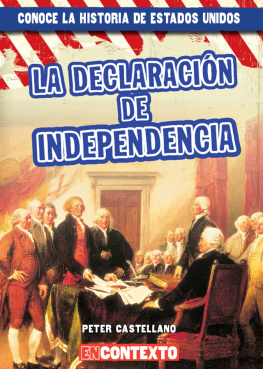
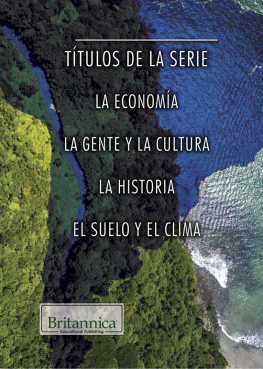
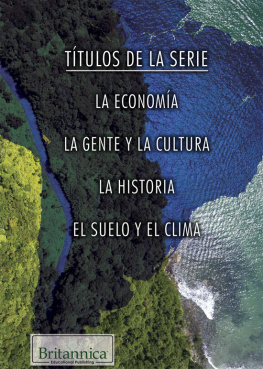
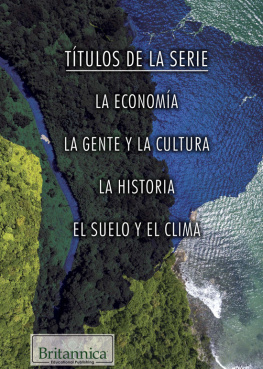
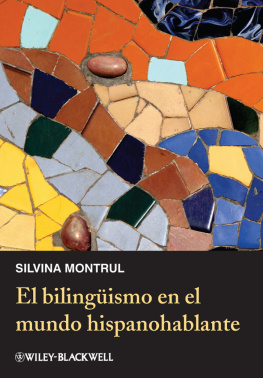

 The paper used in this publication meets the minimum requirements of American National Standard for Information Sciences—Permanence of Paper for Printed Library Materials, ANSI Z39.48-1992
The paper used in this publication meets the minimum requirements of American National Standard for Information Sciences—Permanence of Paper for Printed Library Materials, ANSI Z39.48-1992